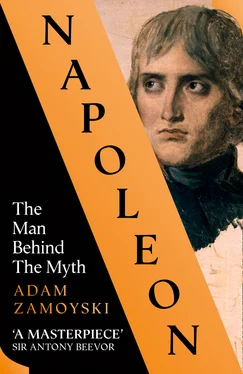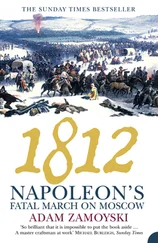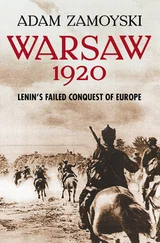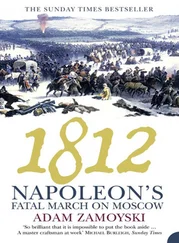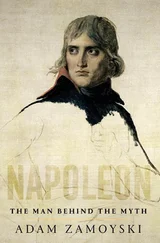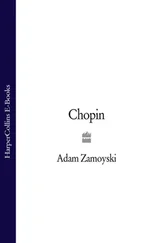There was a degree of consensus that the country needed a new constitution. The first, passed in September 1791, had turned France into a constitutional monarchy. It had been superseded, along with the monarchy, by a republican one in June 1793, Year I in the revolutionary calendar. But this had been quickly suspended in the state of national emergency provoked by the threat of invasion. A new one, the Constitution of Year III, was adopted on 22 August 1795. It replaced the Convention with a Council of the Five Hundred and a Council of Elders of half that number, both elected by suffrage based on property ownership. The governing Committee of Public Safety was to be superseded by an Executive Directory of five elected by the chambers through a complex procedure. ‘The government will soon be formed,’ Buonaparte wrote to Joseph on 12 September. ‘A serene future is dawning for France.’ He could not have been more wrong.1
Those who sat in the Convention had no intention of relinquishing power. Realising that in free elections royalists would capture a majority in both new chambers, they passed a law stipulating that two-thirds of the seats, 500 out of 750, would go to members of the existing Convention. This provoked an insurrection in Normandy and agitation in Paris. Royalists were dominant in several of the sections, the neighbourhood assemblies of the capital, and by the first days of October the city was in a state of ferment.
On the evening of 3 October Buonaparte received a note from Barras, still a member of the Committee of Public Safety, asking him to call at his house in Chaillot at ten the following morning. Barras needed ‘men of execution’ to deal with what he called ‘the royalist terrorists’ mustering their forces. It is not known what was agreed at their meeting, but Buonaparte seems to have remained non-committal, and Barras also contacted two former Jacobin generals who had been set aside after the fall of Robespierre: Carteaux and Guillaume Brune.2
Insurrection was in the air, and by the time Buonaparte returned from Chaillot one of the sections, Le Pelletier, was mobilising its National Guard. He nevertheless went to the theatre. By the time he came out, at about seven or eight in the evening, the situation had grown critical. The Le Pelletier section was in open revolt, turning its narrow streets into an impregnable fortress. General Jacques Menou and representatives of the Convention had set out with troops to confront the rebels, but seeing the impossibility of dislodging them without heavy casualties and realising that they would soon be trapped, they negotiated a truce and retreated. The Le Pelletier section declared itself to be the rightful authority, and called on other sections to join it.
Menou, a former officer of the royal army, was accused of treason and placed under arrest, and the search was on for someone to replace him. Writing more than twenty years later, Buonaparte asserts that he went to the Convention and found the deputies in a state of panic. The names of various generals were put forward, including his. Hidden among the spectators, he was able to slip out to consider his position. He relates that it took him half an hour to decide whether to take up the challenge: he did not like the existing authorities, but if the royalists were to get the upper hand and bring back the Bourbons, everything that had been achieved since 1789 (and his own future) would be in jeopardy. He maintains that he then offered his services to the Committee of Public Safety, on condition he was given absolute authority, without having to take instructions from its representatives as was usual.3
Barras tells a different story. ‘There is nothing simpler than replacing Menou,’ he claims to have told the Committee. ‘I have the man you need; a little Corsican officer who will not be so squeamish.’ In Buonaparte’s version, Barras assumed nominal command of the Convention’s forces, which dispensed with the requirement of government representatives, and he, as second in command, took effective control of operations.4
Either way, neither of them slept that night. Sometime after one o’clock on the morning of 5 October, Buonaparte ordered a young chef d’escadron of the 21st Mounted Chasseurs, Joachim Murat, to ride over to the plain of the Sablons and secure forty cannon stored there before the rebels could get hold of them. At first light, as the drumrolls summoning the national guards of the various sections resounded across the city, Buonaparte was positioning the guns at strategic points around the seat of the government at the Tuileries, such as the Pont Neuf in the east, the rue Saint-Honoré to the north, and what is now the Place de la Concorde in the west.
The government troops, numbering just over 5,000 men, supported by 1,500 ‘patriots’ ready to defend the Republic against the royalists, and several hundred deputies armed with muskets, faced probably about four times their number of national guards converging from all sides. There followed a lengthy stand-off. A heavy downpour dampened the ardour of the insurgents, and it was not until around four o’clock in the afternoon that the first shots were fired. The batteries were positioned in such a way that the insurgents could not deploy and bring their superior numbers to bear, and the canister shot they fired precluded any attempt to rush them. It was all over within two hours, and while gunfire was heard at various points in the city during the night, all remaining rebel forces were mopped up the following day. Reports of casualties vary from around 400 to over a thousand.5
Buonaparte’s version, which became official history and then legend as the ‘whiff of grapeshot’ which demonstrated his ruthless sense of purpose, has him in charge, directing everything, generously waiting for the insurgents to fire first, using only enough of the canister shot to show that he meant business, and firing blanks thereafter. The truth of this is hard to ascertain. ‘The enemy came to attack us at the Tuileries,’ he wrote to Joseph. ‘We killed a lot of them. They killed 30 of our men and wounded 60. We disarmed the sections and everything is quiet.’ Later he claimed that casualties were no higher than 200 dead and wounded on each side.6
Long after he had been shunted aside by the ‘little Corsican officer’, an embittered Barras would describe the events differently. It was he who had planned everything, he who had ordered the guns brought from the Sablons, he who had instructed Brune to fire canister shot over the heads of the oncoming rebels. ‘On the 13 Vendémiaire Bonaparte played no role other than that of my aide de camp,’ he summed up. In his official report delivered to the Convention on 10 October, he praised Brune and others, and did not mention Buonaparte. When Barras had finished, Fréron, still hoping to marry Paulette, rose to speak and reminded him of Buonaparte’s contribution, which Barras reluctantly acknowledged. His report is not the only one to omit Buonaparte. While one account does record that he had a horse killed under him, it states that it was General Verdier who positioned the guns. There must nevertheless have been something remarkable about Buonaparte’s conduct on that day.7
The events had shown that with well-led troops on its side, a government could put an end to the mob rule that had plagued the Revolution. High prices and food shortages meant that Paris remained vulnerable to riots, and in the following days Barras increased the military presence in the city. He recommended Buonaparte for the post of his second in command, and as he himself was about to take up that of a member of the Executive Directory, he would have to give up the command, which meant that his second would be in charge of the most powerful force in the land. It seems unlikely that he would have placed it in any but the most capable hands. There was no further mention of Constantinople, and Buonaparte was now being referred to as ‘General Vendémiaire’, which suggests that his role had been decisive.
Читать дальше
